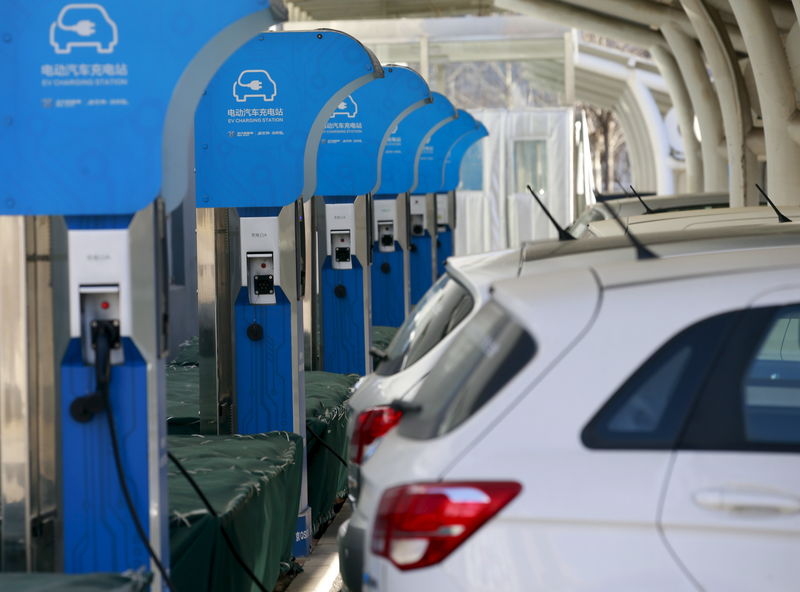By Kevin Yao and Xiaoyi Shao
BEIJING (Reuters) - China's economy grew 6.8 percent in the fourth quarter from a year earlier, matching expectations and the slowest since the global financial crisis, putting pressure on Beijing to roll out more support measures as fears of a sharper slowdown panic investors.
Chinese leaders have been struggling to put a floor under cooling activity, even as a renewed plunge in the country's stock markets and the yuan currency have stoked worries that conditions in the world's second-largest economy may be rapidly deteriorating.
After being a major locomotive of global growth in recent years, China is locked in the midst of a protracted slowdown, weighed down by weak exports, factory overcapacity, slowing investment, a soft property market and high debt levels.
Analysts polled by Reuters had predicted Oct-Dec gross domestic product (GDP) growth of 6.8 percent, easing from 6.9 percent in the third quarter. It is the weakest pace of expansion since the first quarter of 2009, when growth tumbled to 6.2 percent.
Full-year growth was 6.9 percent, roughly in line with the government's target of around 7 percent but the slowest pace of expansion for China in a quarter of a century. Economists had expected 6.9 percent.
Analysts polled by Reuters expect the economy will lose more momentum this year, forecasting growth will cool to 6.5 percent even if Beijing ramps up fiscal spending and cuts interest rates again, as widely expected.
Tuesday's data suggest no material change in what most economists have been telling the world for years: China's economy is cooling gradually from sizzling double-digit growth rates to a hopefully more sustainable pace in the mid-single digits, with no signs yet of a hard landing which investors fear.
But some market watchers believe real growth levels may be much weaker than official data suggest, jeopardizing the fragile global economy.
WEAK END TO 2015
Other data on Tuesday suggested China's economy continued to lose steam late in the year, dashing hopes that a year-long flurry of government measures were finally beginning to take effect.
On a quarter-on-quarter basis, economic growth eased to 1.6 percent in the fourth-quarter, versus expectations of 1.7 percent and down from 1.8 percent in the third quarter.
Industrial output rose 5.9 percent in December from a year earlier, missing forecasts of 6.0 percent, and slowing from November's 6.2 percent.
Retail sales climbed 11.1 percent in December from a year earlier, but less than an 11.3 percent rise expected by the market and November's 11.2 percent.
Fixed-asset investment growth, a crucial driver of the economy, grew 10.0 percent in 2015 from the previous year, also missing market expectations.
Economists had expected investment growth would come in at 10.2 percent - the same rate as in the first 11 months of 2015.

Data on Monday showed China's home prices continued to rise in December 2015, adding to signs of improvements in the housing market, which accounts for about 13 percent of GDP. But a huge overhang of unsold homes means the property sector remains uneven across the country and a full-blown recovery is not seen this year.